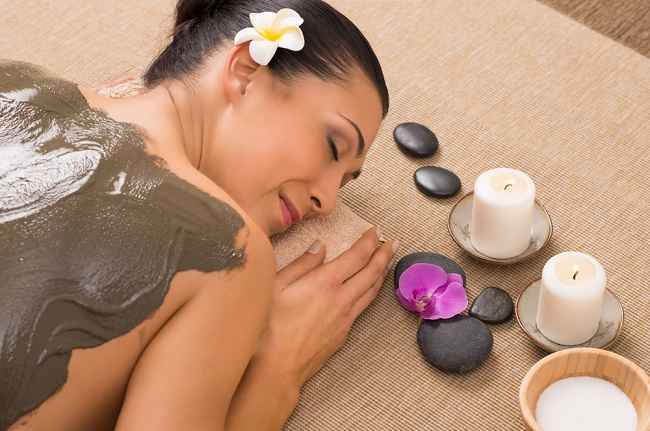Back Focusing on Body Care After Childbirth
Adapting to everyday life after childbirth is a challenge for a mother, especially if it's your first time to have children . Although caring for a baby is an important task, doing body care for yourself after giving birth is also important.
During the postpartum recovery process, various problems can arise, such as vaginal pain or problems in the urinary tract. Good postpartum body care can help minimize pain and discomfort, as well as speed up the mother's recovery process.

Postpartum or postpartum period lasts after giving birth until six weeks later. In this phase, the mother experienced many changes, both on the psychological and physical side. In addition to feeling happy because of the birth of Little, psychic changes that may occur can include changes in mood, easy emotions, feeling anxious or afraid, to sad or called baby blues.
On the change side physical, seen from the discharge of blood from the vagina, such as menstruation or just blood spots. This blood can come and go for six weeks. You can also experience swelling in the legs and feet, constipation, and cramps. Breasts can feel full, painful, and uncomfortable.
Pay attention to any changes that occur. If complications or infections occur, consult a doctor immediately. Newly born mothers also need to do postpartum examination at 6-8 weeks after delivery.
Even though the condition is sad or sick, health care and body care should not be neglected. This treatment aims to avoid the onset of the disease and prevent the more severe conditions that are being suffered in the postpartum period.
Launch Defecation
Hemorrhoids are stretching and swelling of the veins in the lower rectum or anus. Body care steps that can be done to improve bowel movements, namely:
- Soak in warm water.
- Consumption of fiber-rich foods, such as fruits, vegetables, and whole grains.
- Suffice enough to drink water.
- Do not hold back or delay bowel movements.
- Try to routinely do Kegel exercises.
If you have difficulty controlling bowel movements, consult your doctor to get proper treatment.
Helping Urinary Problems
Pregnancy and childbirth can relax the tissues and muscles in the pelvic floor. This condition risks causing damage to the nerves and muscles of the bladder or urinary tract. As a result, you become difficult to control urine discharge. When coughing, laughing, or tense, urine can come out unintentionally.
In addition, swelling or bruising of the tissue around the bladder and urinary tract can lead to difficulty urinating. Over time, this condition can recover. What needs to be done as a proper body care step is to use a bandage and do Kegel exercises to strengthen the pelvic floor muscles.
Relieve Pain in the Vagina
Injury to the pelvis vaginal tears after childbirth can cause pain for several weeks. To support the recovery process, some of the following body care tips can be done.
- Compress the wound with a bag of ice for 10-20 minutes. Use a clean cloth between ice and skin.
- After urinating, pour warm water slowly on the vulva or the outside of the vagina.
- When you defecate, gently press the wound use a clean cloth.
- Use a soft donut pillow if it feels uncomfortable when sitting.
- Take a pain reliever or laxative recommended by your doctor.
By treating the body above, the pain and discomfort that can be felt gradually diminishes. However, if you still feel pain that actually strengthens, the wound feels hot, swollen, sore, or pus out, consult a doctor.
Relieve Pain in the Breast
Normal if the breasts feel tight, swollen, or painful for a few days after giving birth. To relieve this discomfort, you can do the following body care steps:
- Compress the breast or take a bath using warm water.
- Use a breast pump.
- Use special bra pads to absorb leaking milk.
- If you don't breastfeed, use a sports bra to help stop milk production, and don't pump breasts.
If the breastfeeding process is painful, consult a doctor.
Relieve Baby Blues
Don't let feelings of sadness, anger, anxiety become prolonged and make Mother forget to take care of the body. The psychological and emotional changes that Mother experienced are feared to disturb the physical health of the mother and baby. Try to think positively. Share with your partner, about what you feel and think. Generally baby blues disappear within a 2 week period. However, if the baby blues occur on an ongoing basis, do not hesitate to consult a psychiatrist or psychologist for treatment.
In addition to the postpartum body care steps above, you are also advised to avoid contact sexually for 4-6 weeks after giving birth. In addition, do not forget to do postpartum examination. After six weeks after childbirth, your body condition needs to be checked whether the process of recovery of the vagina, cervix or cervix, and the uterus goes well. The postpartum examination also includes general physical and psychological examinations. When undergoing an examination, you can also consult with your doctor about complaints that you may experience.